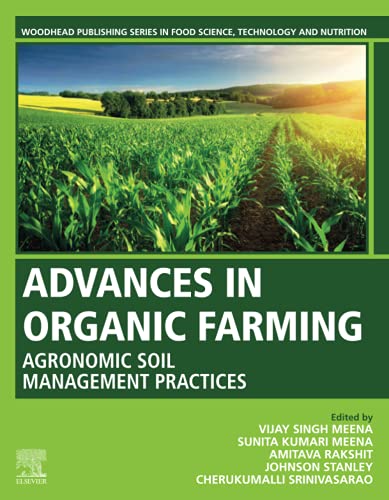

Most ebook files are in PDF format, so you can easily read them using various software such as Foxit Reader or directly on the Google Chrome browser.
Some ebook files are released by publishers in other formats such as .awz, .mobi, .epub, .fb2, etc. You may need to install specific software to read these formats on mobile/PC, such as Calibre.
Please read the tutorial at this link. https://ebooknice.com/page/post?id=faq
We offer FREE conversion to the popular formats you request; however, this may take some time. Therefore, right after payment, please email us, and we will try to provide the service as quickly as possible.
For some exceptional file formats or broken links (if any), please refrain from opening any disputes. Instead, email us first, and we will try to assist within a maximum of 6 hours.
EbookNice Team

Status:
Available4.8
28 reviewsAdvances in Organic Farming: Agronomic Soil Management Practices focuses on the integrated interactions between soil-plant-microbe-environment elements in a functioning ecosystem. It explains sustainable nutrient management under organic farming and agriculture, with chapters focusing on the role of nutrient management in sustaining global ecosystems, the remediation of polluted soils, conservation practices, degradation of pollutants, biofertilizers and biopesticides, critical biogeochemical cycles, potential responses for current and impending environmental change, and other critical factors. Organic farming is both challenging and exciting, as its practice of “feeding the soil, not the plant provides opportunity to better understand why some growing methods are preferred over others.
In the simplest terms, organic growing is based on maintaining a living soil with a diverse population of micro and macro soil organisms. Organic matter (OM) is maintained in the soil through the addition of compost, animal manure, green manures and the avoidance of excess mechanization.